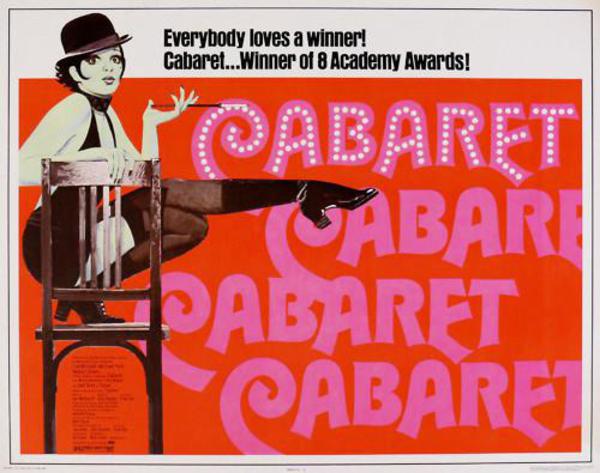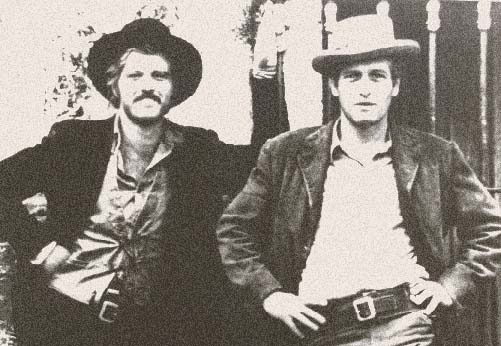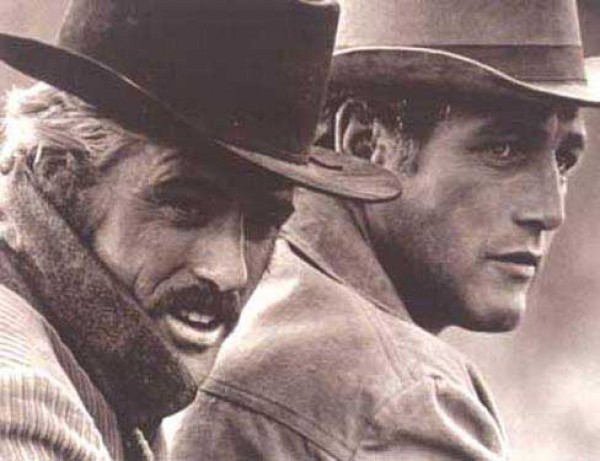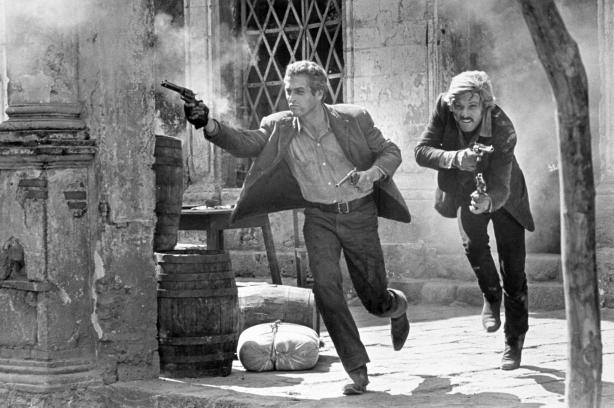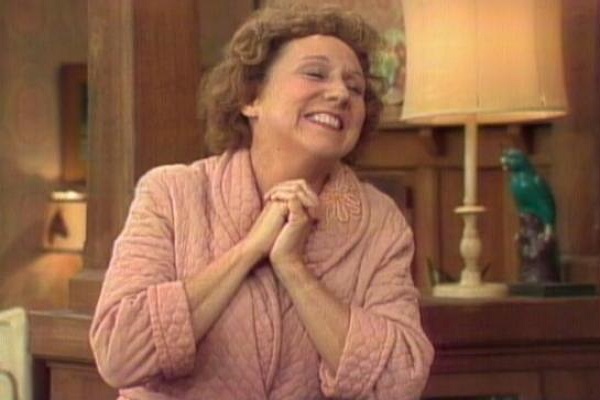When I first ventured down this road trying to understand my passion for classic films, I insisted on creating a list of rules for myself. I would find a way to introduce a new generation to the talents of days past. I would do my best not to say something that I know someone else has said before. Under no circumstances would I neglect to spell out the word “Boulevard” any time I mentioned Gloria Swanson and Mr. DeMille. Never would I hand an opinion to my readers, but rather I would approach my pieces from the perspective of the cute guys who hand out free samples at the Ferry Building – hello, I’m confident and secure with my feelings about this pear slice, but let’s see what you think. When it came to choosing the films, I was absolutely certain there had to be a cut-off year. While it was acceptable to gaze beyond and appreciate the world of Hollywood after 1970, it was strictly forbidden to write about a film that was released after 1969. Let tomorrow belong to someone else.
There is no academic, logical, or creative reason that went into this fear of the 1970s, but it felt snuggly appropriate at the time. In retrospect, perhaps I needed boundaries and structure to help push through the cold feet I had about putting my writing out there for all the world to see and judge. I was convinced that the meticulous and delicate structure of The Ticket Booth would crumble if I crossed that threshold and stepped out of 1969 and into 1970. It was there that, without warning, the past would become the present, and writing about the present simply would not do. It was with Maggie Smith’s Academy Award-winning performance in The Prime of Miss Jean Brodie (1969) that I put my toe on that threshold of my own making, and until today I had yet to cross.
Learning to become an adult seems to be an ongoing lesson of learning what “the rules” are: don’t be late for work or rock the boat in an unstable economy, because money makes the world go ‘round. Don’t date that kind of guy; go on more dates with that kind of guy, because everybody loves a winner. We’re taught early on that breaking the rules will surely result in doom and gloom and an unhappy existence . . . but I ask you, what good’s omitting some prophet of doom? When life hands us too many rules, we have to find a few we can step on like crunchy dead leaves. I think the best ones to start with are the rules we created for ourselves. I’ll get to the others later, I promise, but today, today we cross into the 1930s by way of the 1970s. Sometimes a man must live on the edge, throw caution to the wind, defy authority (especially if he is the authority), and all those other clichés in the carpe diem cliché bag. Sometimes a man needs to sit down with his pen and scribble at the top of the page, “Let’s talk about Cabaret (1972).”
I wish I could create a new word for the feeling I get when I write down the word “Cabaret.” It’s a loopy capital “C” goose-bumpy version of excitement, like my pen should have its own tiny theatre marquee on it. My writing process has to begin with actual writing . . . with a pen and a piece of paper. See that? More rules! The physical action of writing brings the words closer to me and allows me to have multiple thoughts at once, while typing never felt as creative. This is one rule that happens to work for me; it’s a rule that I have tried breaking on occasion but with fairly dismal results. For this guy, pens are for writing, and computers are for editing. And that giddy twinge of happiness I feel in my fingers when I make a loopy capital “C” in “Cabaret” is almost as wonderful as the movie itself. Almost.
Set in 1931 Berlin, the musical numbers of Bob Fosse’s Cabaret help narrate the stories of a young, sexually inexperienced man, a girl who yearns to be seen as a divinely decadent international woman of mystery, and the growing Nazi Party that is becoming an increasing presence in their world. The masterful Joel Grey won an Oscar for the deliciously supporting role of the club’s Emcee, outshining not one, not two, but three gentlemen who were nominated for The Godfather (1972). At the end of a golden evening, Cabaret walked away with eight Oscars, and Liza Minnelli will be wed eternally to the songs from her iconic performance as Sally Bowles, for which she won the Academy Award for Best Actress in a Leading Role. The dark musical is an ideal experience for those who stick stubbornly (no judgment!) to an “I don’t like musicals” rule. Perfectly understandable, and without any knowledge of the film or the play, I see how the suggestion of watching a musical starring Liza Minnelli may conjure up thoughts of a sequined, light-hearted story full of nauseating lovey-doveyness. I will reveal nothing about the plot, but I swear on my stack of Liza albums, this is not the case.
My love for Liza Minnelli is well known ‘round these parts, and I get a kick out of the fact that younger generations are enjoying her almost as much as I do. With very good reason, she was my favorite character on Arrested Development. She was so good that Jessica and I named our wine bar trivia night team “Lucille Two,” assuming we would receive extra points. When I had the opportunity to see Liza perform live at the San Francisco Symphony, yes, her voice and body had changed a bit, but that energy and personality dazzled right along with her red scarf, and her performances of “Maybe This Time” and “Cabaret” brought a few tears to my eyes. As much I enjoy her voice and her acting, I discovered recently that my favorite of all of Liza’s attributes is her laugh. In all the years that the world has poked fun at her, impersonated her with the best and worst of intentions, and made countless jokes at her expense, I always had the feeling that no one was howling louder at those jokes than Liza herself.
As kids we think that if we ignore the bullies, eventually they’ll stop bothering us, but personally I never found that to be the case. It was with those unimaginative homophobic words that we would later reclaim as our own, that the silly young boys (and a few girls, as I recall) found a way to make some of us stand out from the crowd. At a time when we knew in our fabulous hearts that it was safer to blend in, still I was unable to understand why everyone wanted to run around on a dirty field and fight over a ball . . . I was arming my peers with the all ammunition need. But to laugh at them while they attempted to hurt me? To laugh at those who pointed out what seemed like a simple truth but somehow transformed into an insult? To laugh at those who made me see that simple truth as an insult? To laugh at those who belittled those who enjoyed a catchy musical more than football? At an age when very few of us were strong enough to laugh, and doing so would have certainly broken the social rules, it would have been comforting to know that eventually we would find our strengths when we found our role models.
Yes folks, Liza Minnelli is a force stronger than any playground bully – tell your children.
I love her voice. I love her range. I love her humor. I love those eyes that remind me of her mother’s. I love the strength wielded by that infectious laughter of hers. And I love a cabaret!
Academy Awards for Cabaret (1973): Best Director, Best Actress in a Leading Role, Best Actor in a Supporting Role, Best Cinematography, Best Film Editing, Best Original Song Score or Adaptation Score, Best Art Direction, and Best Sound

